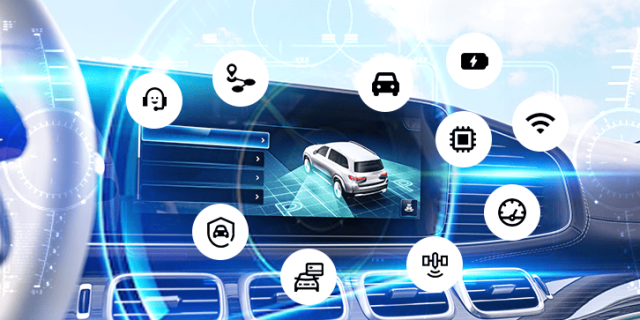
According to a research report “Metaverse Market for Automotive by Products (Software, Hardware), Technology (Virtual Reality (VR), Augmented Reality (AR), Mixed Reality (MR), Non-fungible Token (NFT), Blockchain), Function, Application & Region – Global Forecast to 2030″ published by MarketsandMarkets, the global metaverse market for automotive is projected to grow from USD 1.9 billion in 2022 to USD 16.5 billion by 2030, at a CAGR of 31.4%.
Factors such as growing inclination of automotive OEMs for developing technologies like digital twin factories and virtual showrooms in the metaverse space has led to a rapid growth of metaverse industry. Many software giants and start-ups are also developing their AR/VR technologies to be used in automobiles. Users and customers are showing their interest in the NFTs and crypto to be used in the asset marketplace in the virtual space. Metaverse technologies has made the things much more convenient in the field of simulation and testing the vehicle.
Download PDF Brochure @ https://www.marketsandmarkets.com/pdfdownloadNew.asp?id=10437470
Software segment is estimated to lead the market during the forecast period
The software includes software for avatars, digital twins, online car design, AR-based virtual showrooms, and metaverse platforms. A game engine is a software development program or environment used originally to develop video games. Now, a game engine can also be used for visualization (as with the development of digital twins), collaboration, and more. The features of a game engine may include animation tools, AI, physics and collision engines, audio engines, and more. The metaverse platforms are likely to rule the software segment as these platforms are nowadays leveraged by big companies to collaborate between the real and virtual worlds. Many gaming companies like Epic Games, Roblox, Decentraland, InfiniteWorld, and Upland have developed their own games in the metaverse, in which they have showcased the launch of new automobiles by many automobile firms. Many other companies are developing their own metaverse space like NVIDIA’s Omniverse and Tech Mahindra’s TechMVerse.
AR is estimated to be the largest market during the forecast period
AR has a vast number of applications in the automobile industry. For instance, it is used to leverage various AR software and hardware products to improve their manufacturing and inspection processes in factories. It is also used in the maintenance of vehicles, and it also contributes to building various types of HUDs. It is also used for advertisement and online car sales using virtual showrooms, virtual simulation drives, and online car designs, among others. Automobile manufacturers and dealers are incorporating cutting-edge AR technologies to provide unparalleled services and safety of vehicles. Despite COVID-19, the automotive industry has continued to experiment with AR technologies to finetune the value chain, from R&D to manufacturing, and in sales and marketing of products. The automobile industry has adopted AR applications on a mass level. Nissan, for instance, provides an AR-based virtual showroom and test driving to its prospective clients visiting its website to buy cars. It developed this during COVID-19 when its sales went down due to customers avoiding visiting showrooms. Over time, this application gained popularity, and Nissan gained a competitive advantage in the early phase of rolling out this system. BMW has also adopted AR in its factories by developing digital twins of its factories. With the AR app, the technicians can get related data about each tool before using them. It optimizes the assembly process with AR images of vehicles and technical information about AR glasses. BMW has also introduced its Virtual Viewer, which is its first-ever AR tool. It will provide a whole new way for customers and users to customize a BMW model. In September 2018, Hyundai also invested in WayRay to develop a holographic AR-based navigation system for its future vehicles.
“Europe is expected to be one of the largest markets during the forecast period.”
The substantial growth of new technologies for the automotive industry in Europe is a key driver for the metaverse market for automotive in this region. AR/VR/MR technologies are expected to witness significant demand from the automotive sector in the region. There is an increase in the number of start-ups related to XR in Sweden; as a result, the metaverse market in automotive is expected to witness high growth in Europe during the forecast period. Sweden-based companies like Volvo and Terranet AB have made various partnerships to develop metaverse. Volvo has partnered with Epic Games and is planning to work on in-vehicle infotainment and map services using metaverse and VR. Terranet AB has partnered with Holoride to develop new applications for Terranet’s Voxel flow technology in autonomous vehicles. French automotive manufacturers like Bugatti, Alpine, and Renault, among others, have also made significant progress in the field of metaverse. Bugatti leverages VR, through which it builds virtual prototypes to design vehicles. Renault has partnered with Blippar, who will develop Augmented Reality Digital Placement (ARDP) for Renault’s new Captur car model.
Key Market Players
The Metaverse Market for Automotive is dominated by established players such as NVIDIA (US), Roblox Corporation (US), Unity Technologies (US), Meta Platforms Inc. (US), and WayRay (Switzerland). They develop products and provide service offerings for the automotive metaverse ecosystem.
Request Free Sample Report @ https://www.marketsandmarkets.com/requestsampleNew.asp?id=10437470
